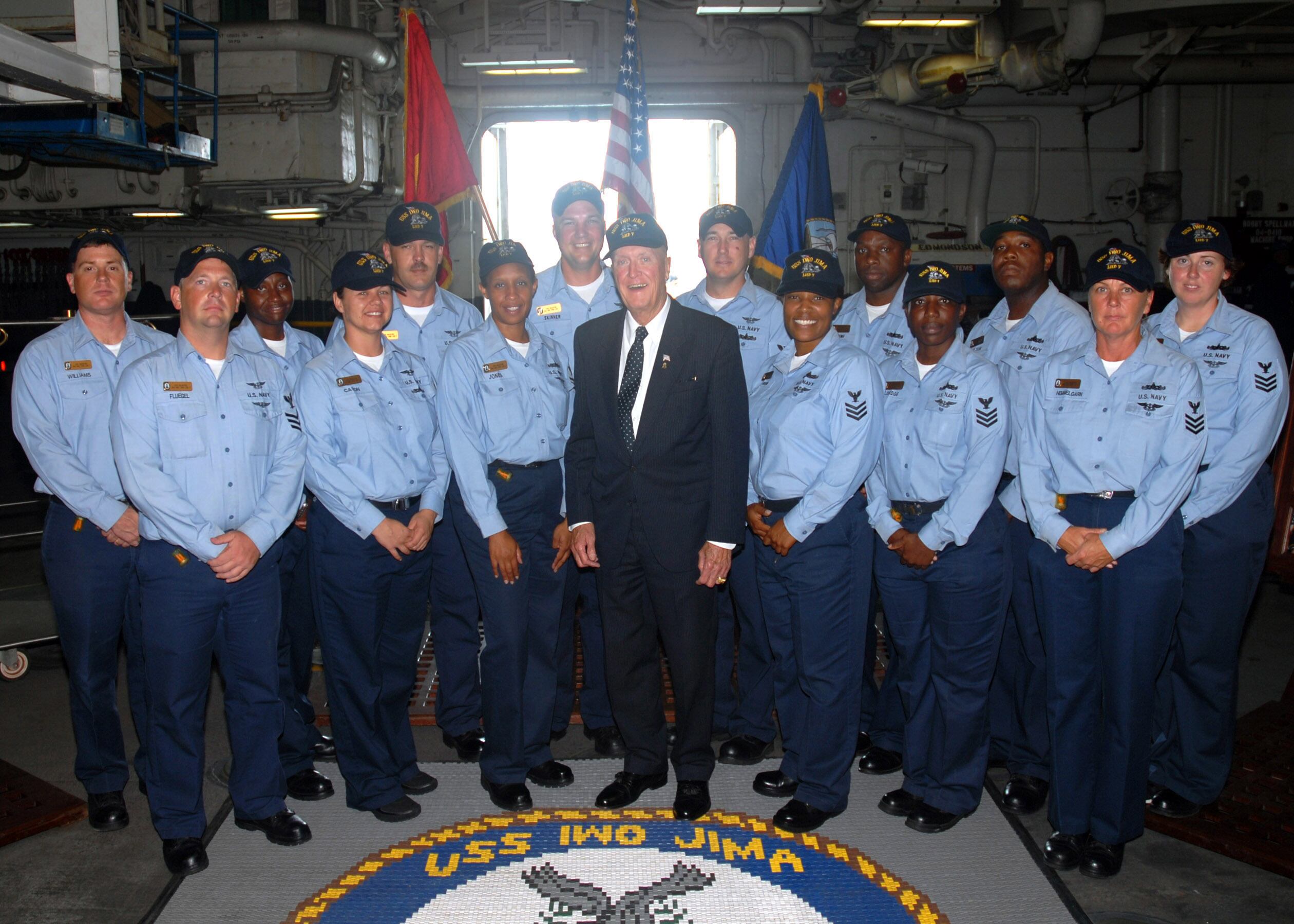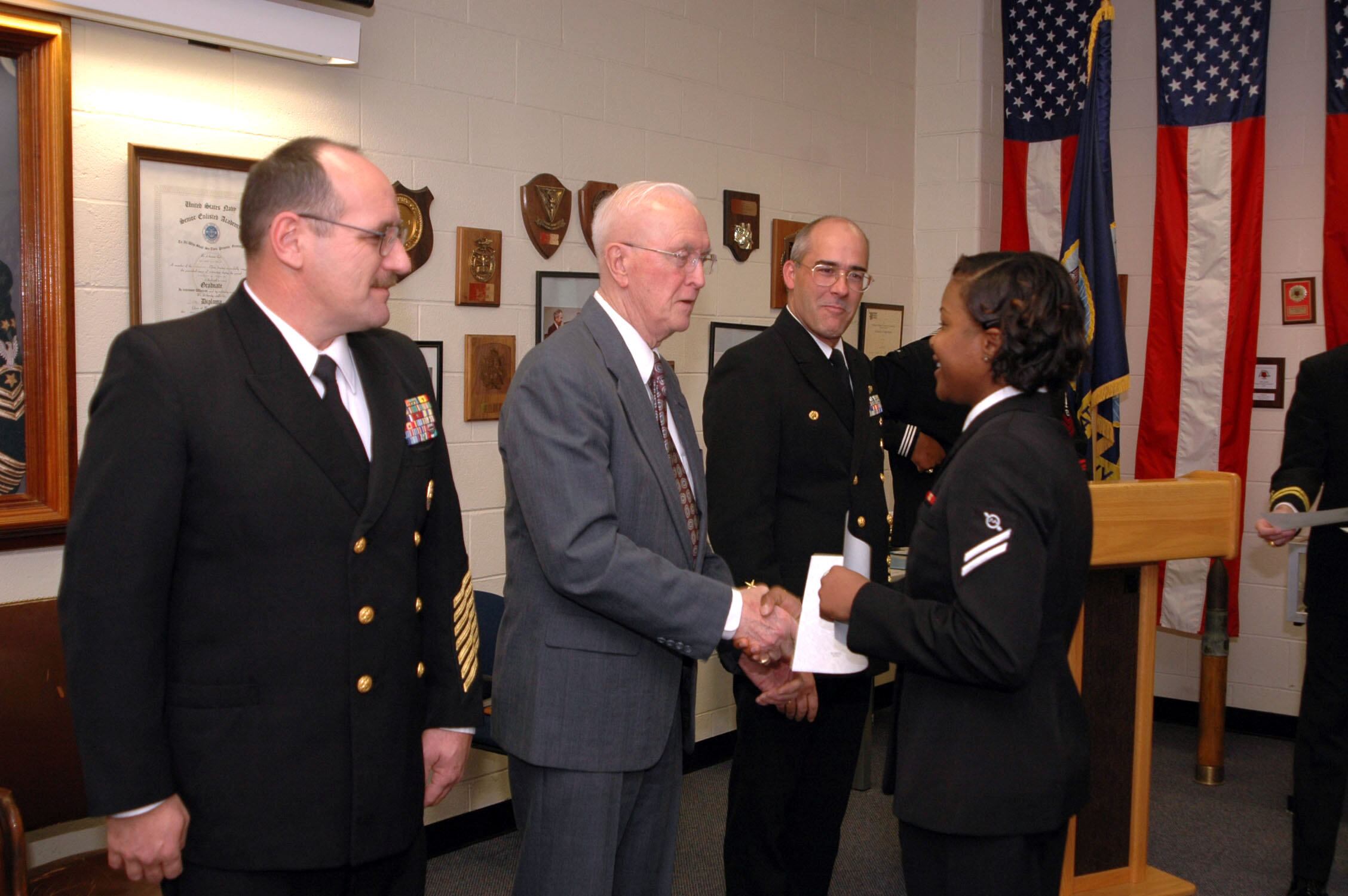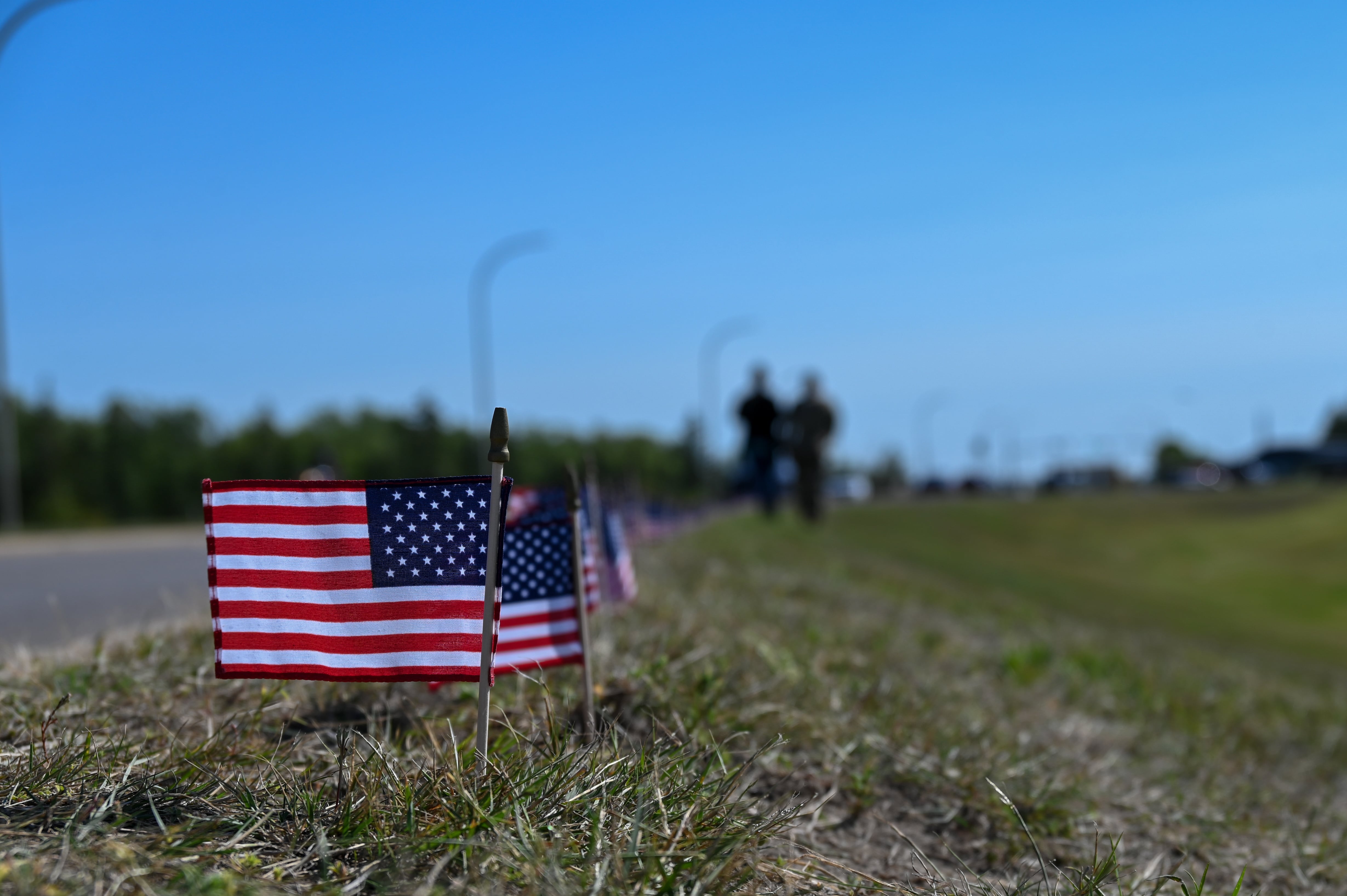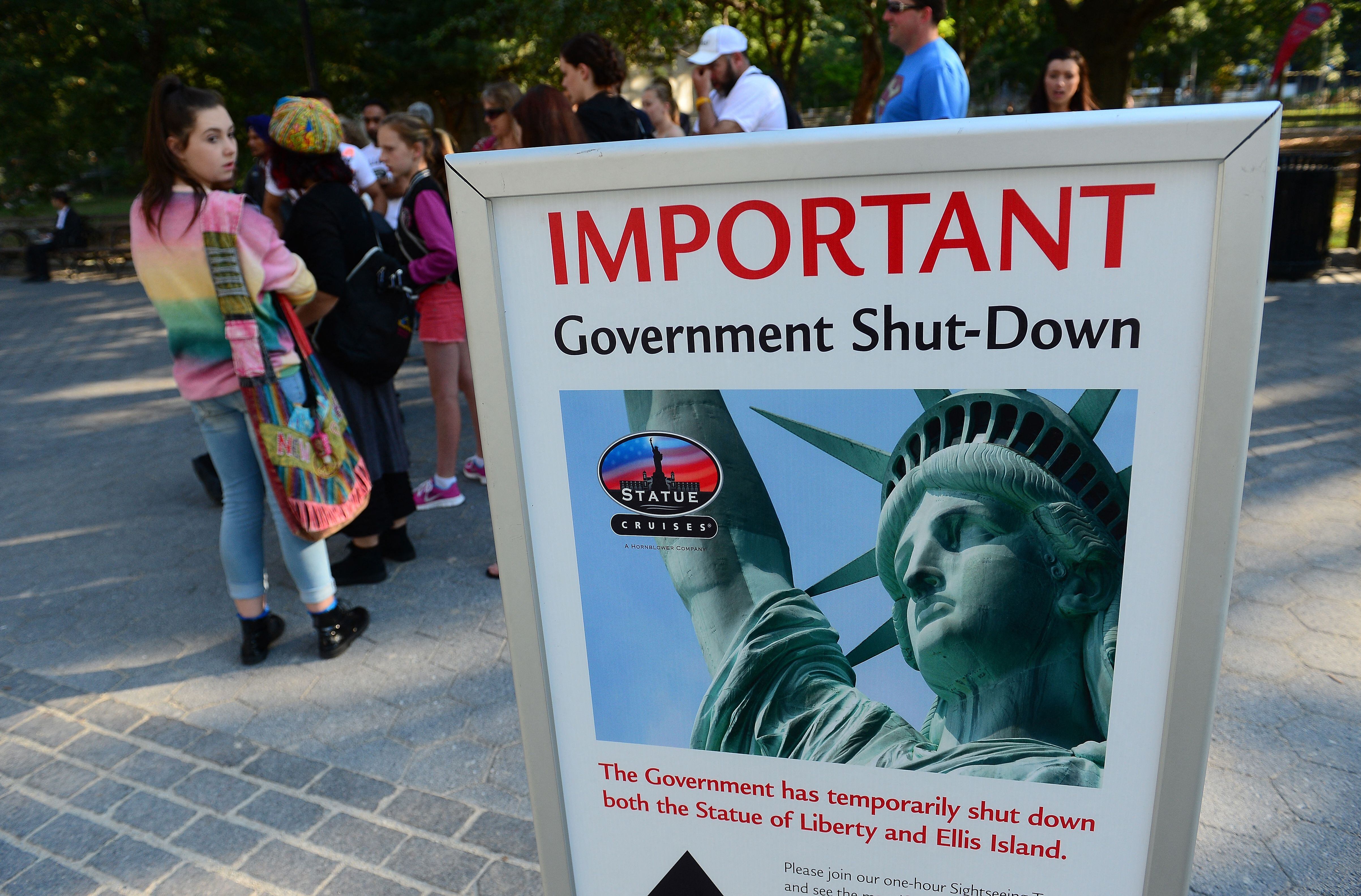Master Chief Robert Walker got the news that he'd be the third master chief petty officer of the Navy in September 1975.
But when he called his wife with the news, she wasn't sure he'd gotten he job — she couldn't understand his words, because he was was crying into the phone and it wasn't until he got home later that day that she knew for sure.
It’s a story that his wife, Fran, has told many times over the years and one that current Master Chief Petty Officer of the Navy (AW/NAC) Mike Stevens recounted during Walker's memorial service Tuesday in Norfolk, Virginia, to illustrate what kind of sailor — and chief petty officer — Walker was both during and after his service.
Walker, who retired in 1979 and died Feb. 15 at 87, had never truly left the Navy, Stevens told the mourners in his remarks during a memorial service held today in the Naval Station Norfolk Theater.
"You see, he was emotional because he recognized the opportunity he was now being afforded," Stevens said. "The opportunity to lead and advocate at the highest level for the sailors and families he so deeply loved."
Stevens told the assembled guests, who included four former MCPONs, a secret of the position. Each MCPON records a video as he prepares to leave office. passes down advice to the next through a video they record as they leave office.

Walker poses with chief petty officer selectees aboard Iwo Jima in 2007.
Photo Credit: MCSN(SW) Bryant A. Kurowski/Navy
Through these messages, each new MCPON gets a bit of advice from his predecessor as he begins the job. Listening to Walker's advice, Stevens realized that Walker was what Stevens calls a humble servant leader — one who was dedicated to serving those under him and not expecting the reverse.
"This trait was evident in Bob from an early point in his career, long before he was MCPON, and long into his civilian career," Stevens said. "Bob believed in rolling up his sleeves and working hard for his people and his Navy — Bob was a man of action, especially when it meant speaking up for his sailors."
Walker, a New York native, joined the service in 1948 and became a radarman. His first ship was the destroyer McKean onboard which he made his first deployment, a Western Pacific cruise during the occupation of Japan just a few years after the end of World War II.
He also served aboard destroyer escorts William Seiverling and Erben, according to a Tuesday news release from the MCPON's office. Aboard Erben, he deployed in support of the Korean War. His last sea duty was as the first full-time command master chief onboard the aircraft carrier John F. Kennedy in the early 1970s.
He rose fast in the Navy, making first class petty officer in four years and earning his chief's anchors by his eight-year mark. As a master chief, he saw his career-long rating — radarman — changed to operations specialist.
When the Navy started looking for a senior enlisted person to serve as an adviser to the Navy's leadership, Walker's command put him in for the job.
He didn't even get an interview.
"I didn't make it to first base," Walker said in the history of his time as MCPON, published in the unofficial history of the MCPON’s office, "Winds of Change."
"I was very junior. But it was nice to be recommended. But I tell you one thing. I know a lot of people thought I was an egotistical whatever, but I told people I was going to be master chief petty officer of the Navy one day."
He realized that goal a decade later, when then-Chief of Naval Operations Adm. James L. Holloway III named him to the post.

Walker congratulates Operations Specialist Seaman Apprentice D'Ebony Simons on graduating from "A" school training at the Center for Surface Combat Systems Unit Dam Neck in 2007.
Photo Credit: MCSN John Suits/Navy
It was the early days of the all-volunteer force. In the post-Vietnam War Navy, budgets were cut, making resources thin, but Walker didn't bend. His vision was that the Navy transition from a conscript force to a professional military organization.
He'd long admired the professional nature of the submarine force, which emphasized that all its sailors become "qualified in submarines" and sought to bring that to the rest of the Navy.
In 1979, his last year in the job, Walker was responsible for the creation and implementation of the Enlisted Surface Warfare Specialist Program. In the years since, similar warfare programs have been created in nearly every community in the Navy.
"I wanted the Navy to adopt ESWS for professional reasons," Walker told Navy Times in 2009 when then-MCPON (SS/SW) Rick West and his fleet master chiefs made warfare qualifications mandatory for those making E-5.
"I wanted it to be mandatory from the start as it was in the submarine force, as putting on dolphins meant quite an accomplishment, the completion of one helluva indoctrination. ...
"So I said why don't we create that same professionalism in the surface force with a very tough program because I felt the Navy would benefit because of the increased professionalism."
Walker said he had to compromise on making the qualification mandatory, but was proud to see it achieve that status decades later.
"This was absolutely what I had in mind when we started down this path in 1978," Walker saidtold Navy Times in 2009 on hearing of then-MCPON (SS/SW) Rick West's initiative to make the quals mandatory for those making E-5. "It's taken 30 years and it's about time."
Other accomplishments of Walker's tenure as MCPON were reforming the Navy's performance evaluation system, formalizing the Command Master Chief Program and setting expectations for the newly formed fleet and force master chief roles.
He played a key part in the establishment of Navy leadership training at all ranks that remains mandatory today, including helping lay the groundwork for the "finishing school for chiefs," the Senior Enlisted Academy.
Walker also pushed for off-duty education as a big advocate for the then-Navy College for Achievement — the predecessor of today's Navy College program and mandating his senior enlisted advisers tell all their sailors how to access the benefit.
He pushed the Navy to work with private colleges to establish college credits for Navy schools and experience.
In a message from current Chief of Naval Operations Jonathan Richardson, read by Stevens during the ceremony, current Chief of Naval Operations Adm. Johnathan Richardson quoted then-CNO Holloway in his remarks on Walker's retirement in 1979, stating the critical nature of Walker’s role in helping him navigate the tough budgetary and cultural issues of the late 1970’s.
"As CNO Admiral Holloway once said, 'Master Chief Petty Officer of the Navy Robert Walker must be given a major share of the credit for the stability, professionalism and strong morale that characterized the Navy's enlisted ranks during these trying times,'" Stevens quoted Richardson as saying.
"MCPON Walker's five principles of professionalism — technical expertise; job skill; leadership; motivation; and personal integrity and responsibility — were fundamental to restoring the Navy's esprit de corps then and are equally valid today."
After leaving the Navy, Walker continued to advocate for sailors as a member of the Navy League's board of directors, president of the Non Commissioned Officers Association and co-founder and chairman of the Chief Petty Officer Scholarship Fund, which provides educational assistance to the children of Navy chief petty officers.
Walker loved the Navy and the sailors he served, Stevens said, and his legacy is one that still lights the way for sailors.
"Honesty must be a day‑to‑day example of genuine concern for people, a professional approach to the mission, and the ability to lead and accomplish set goals," Walker told the Navy in his farewell message. "Never be afraid to admit mistakes or try new ideas, and by all means, let your subordinates have the opportunity to recommend and become part of the solution — we are all sailors striving to achieve a common goal and that is the continued freedom our great nation enjoys — the most important thing to keep in mind is that the Navy is truly an honorable profession."
Staff writer Sam Fellman contributed to this report.
Mark D. Faram is a former reporter for Navy Times. He was a senior writer covering personnel, cultural and historical issues. A nine-year active duty Navy veteran, Faram served from 1978 to 1987 as a Navy Diver and photographer.





